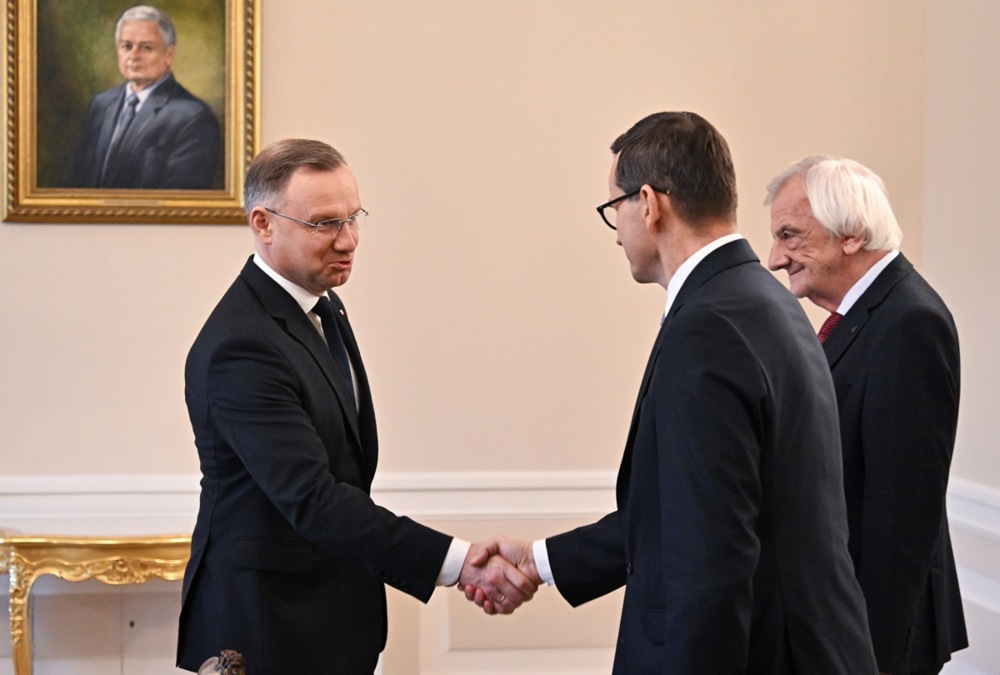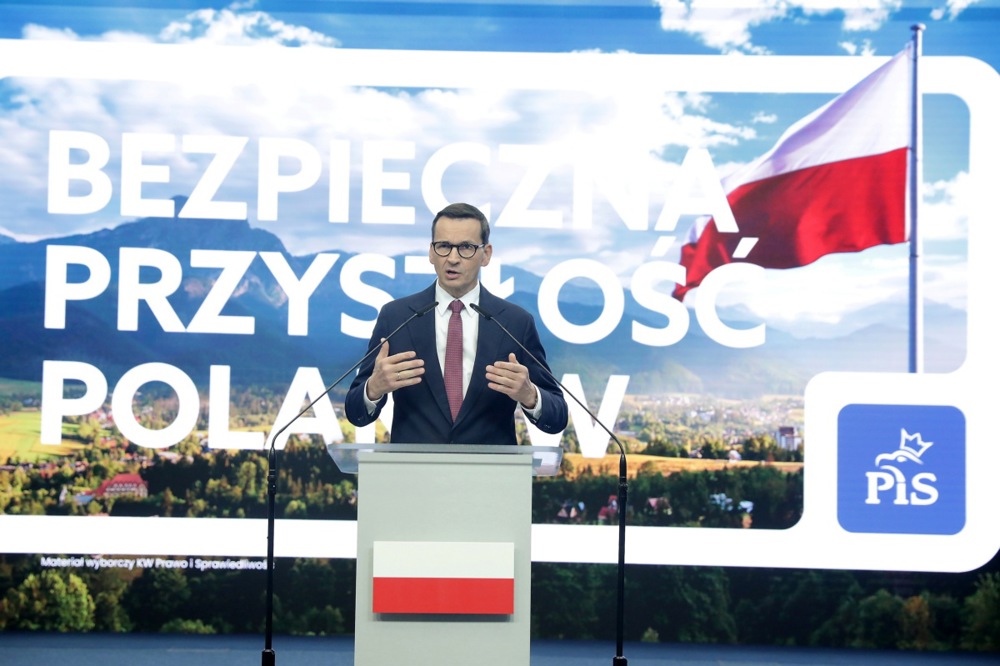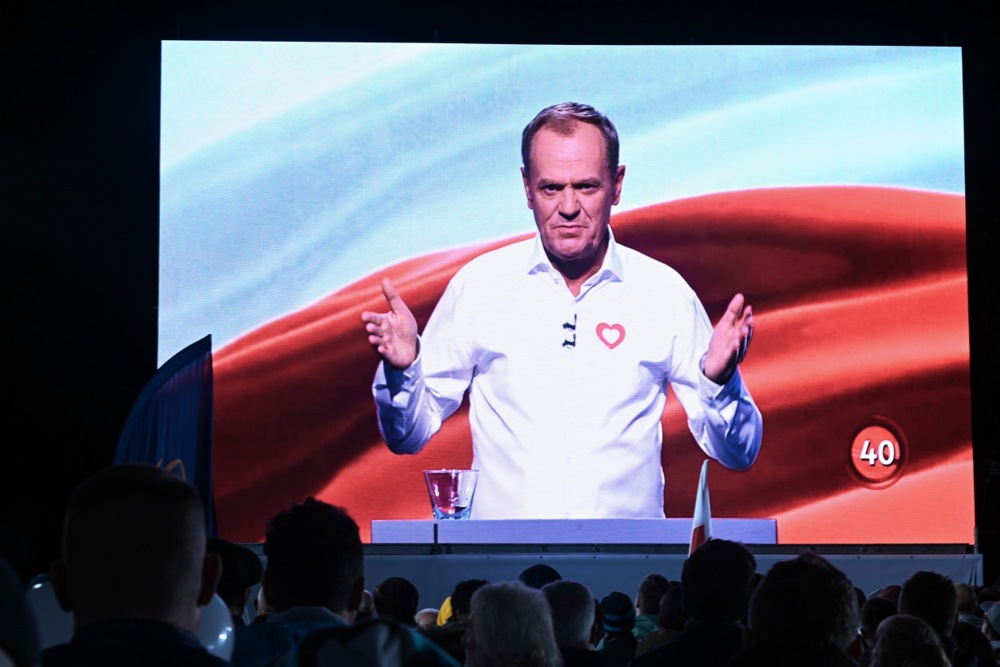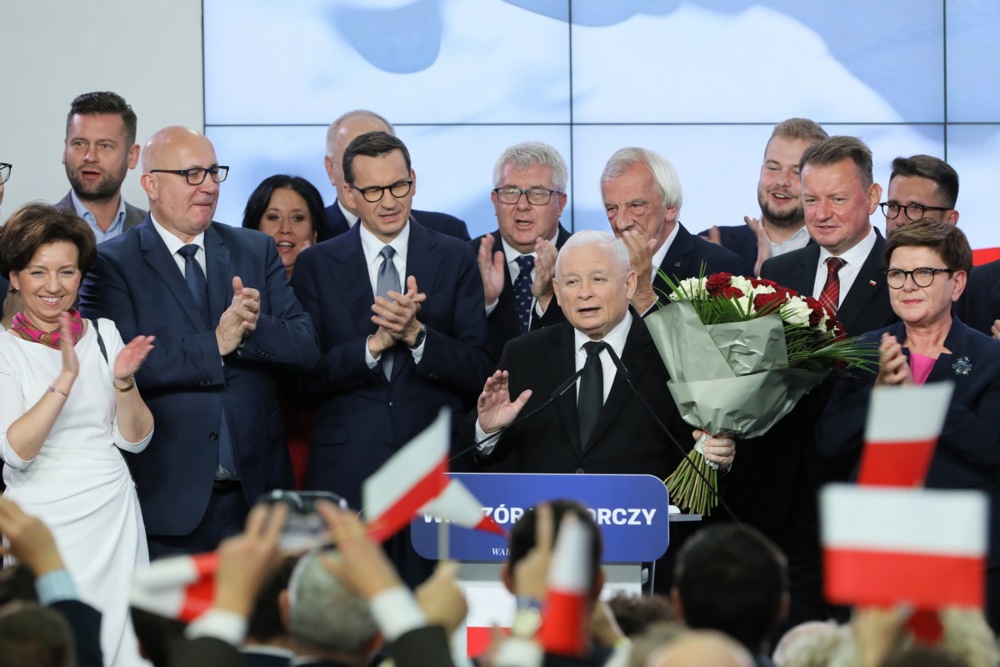Polish President Andrzej Duda has appointed a government headed by Prime Minister Mateusz Morawiecki that is expected to last just days.
Morawiecki has been in the post for the past six years and is supported by the Conservative PiS, which lost its parliamentary majority in October’s general election.
The new Government has been appointed following Duda’s decision to give Morawiecki the chance to seek parliamentary approval on the grounds that the PiS remains the largest party in the Polish Parliament.
The chances of this Government being confirmed by a majority in Parliament are seen as practically zero because most of legislature is held by four parties: Donald Tusk’s Civic Coalition (PO), the Poland 2050 and Polish People’s Party (PSL), which together make up the electoral Third Way Alliance, and the Left party.
They have signed a coalition agreement and taken control of Parliament by electing the Speaker Szymon Hołownia, who is the leader of Poland 2050.
The Government sworn in by Duda on November 27 includes just three ministers from the previous incarnation: defence chief Mariusz Błaszczak, Marlena Maląg – who becomes minister for development – and Szymon Szynkowski vel Sęk, who becomes foreign minister.
The remaining members of the Government are former junior ministers or senior civil servants who served in the last PiS administration. In addition, there are a number of lesser known PiS MPs, who have been described as “no names” by politicians in the new parliamentary majority.
The only striking feature of the new administration is the fact that the majority, 10 out of 19 ministers, are women: a first time in Polish political history.
In an interview with the Polish Press Agency (PAP), the PiS party leader Jarosław Kaczyński took full responsibility for the new administration. He made it clear that the ministers had been approved by him and that the concept behind this “expert-political” Government was his.
Kaczynski said his party wanted to propose a “different face” to end the “war” he said was being conducted by the largest party from the new parliamentary majority, Tusk’s PO.
“That is the idea of this proposition,” Kaczynski explained.
“We want to show that it is possible to rule differently. We will see how it will be taken.”
A parliamentary vote of confidence must be passed in the next two weeks for this administration to survive and, since that is unlikely to be successful, Parliament will have another 14 days to vote in the Government, which is set to be headed by Tusk.
The new parliamentary majority is unhappy with the PiS for ‘wasting time’ and for continuing to take administrative decisions that do not require parliamentary approval, such as the Prime Minister’s appointment of his close ally as the new head of the Financial Supervisory body over the banking system on November 23.
Alongside that, feathers have been ruffled over the decision taken by the culture minister to make regulations changing public media, meaning any process of liquidation would have to involve the present PiS-nominated governing boards of these outlets.
Sources close to the outgoing PiS have said they realise the appointment of the “new” Morawiecki Government is a “charade” but acknowledge it is one that is necessary to underline to its voters that the party did top the polls and is ready to govern.
Some within the PiS camp acknowledge this is “mission impossible” for Morawiecki and that its failure may discredit him, adding not all in the party will be heartbroken about that.
PiS now has to prepare for the all-out local government elections in which it is defending its rule in seven out of 18 Polish regions in April. In addition, it has to fight in the European Parliament elections, in which it is defending 26 seats, in June 2024.
The party still holds important offices of State, such as that of President – Duda – who ends his second and final term in the summer of 2025.
Also, there is the head of the central bank (NBP), bodies that appoint the boards of public media as well as the constitutional court, the Supreme Court and the National Judicial Council.





